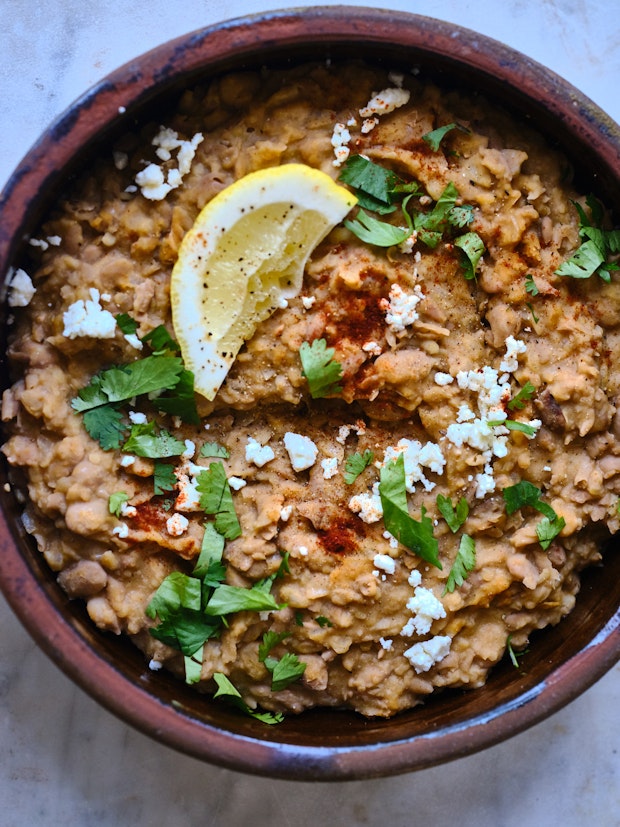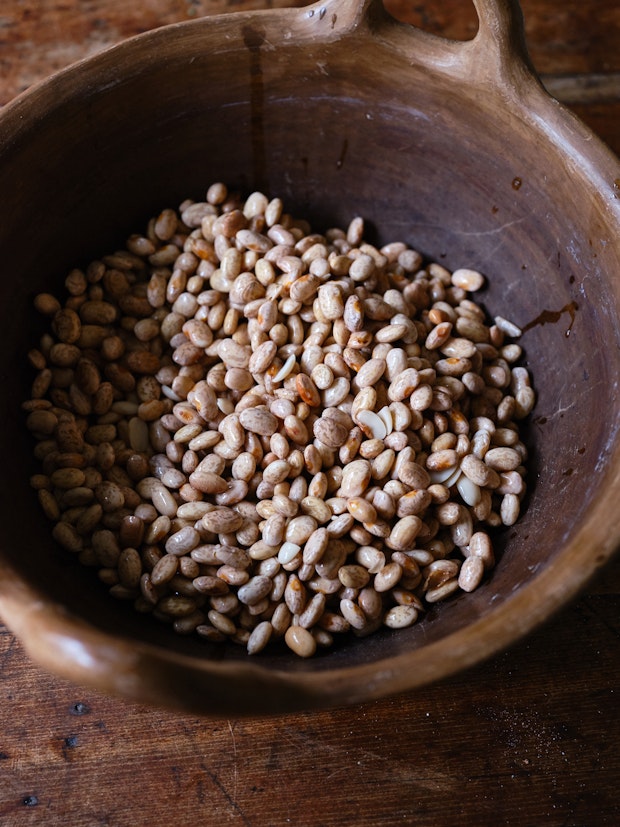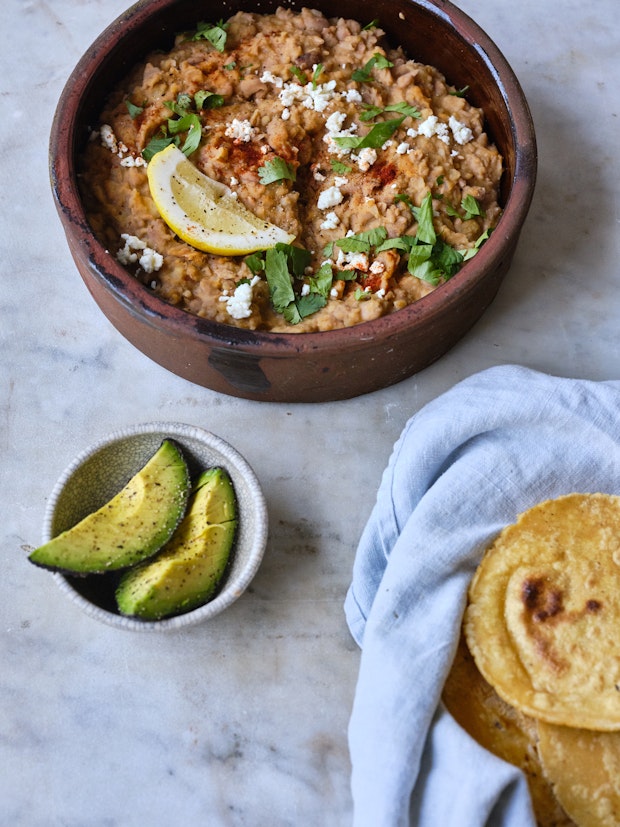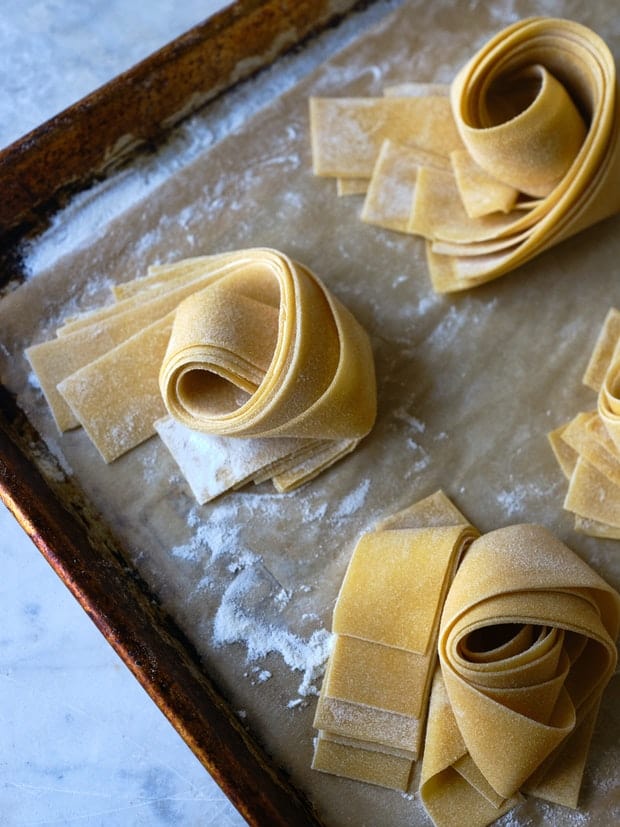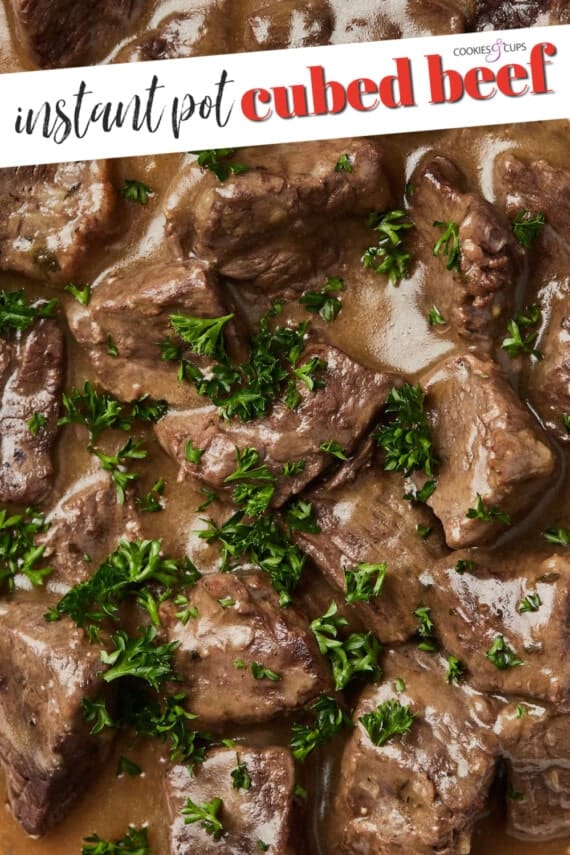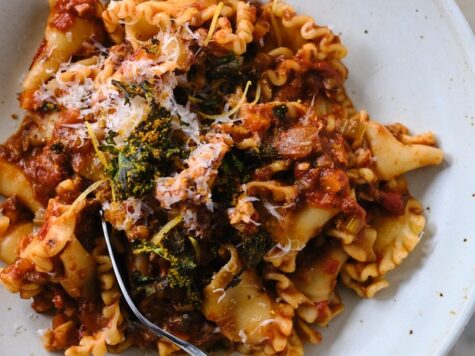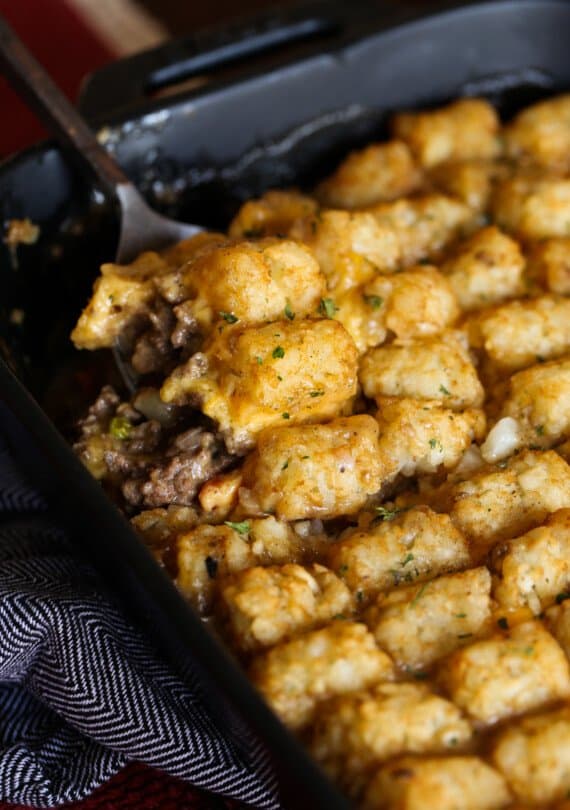If you’ve only had refried beans from a can, this should be the next recipe you cook. Homemade refried beans are a game-changer. They’re simple to make and having them on hand makes it simple to throw together meals for days. Think tacos, tostadas, chilaquiles, and next-level bean dips. There are a lot of opinions about how to make refried beans. I’ll just say this: when I’m home alone, and there’s no one else to share a meal with, this is how I cook them. This version is so incredibly good that I usually just enjoy them by the spoonful. But it’s also so simple that I didn’t think to share the recipe here until a number of you asked when you saw me cooking in one of my Stories recently. So here we go!
My Refried Bean Technique
The way I cook refried beans is quite straight-forward, although I do have a couple somewhat unconventional moves that I stand by. I like my beans with depth and flavor, while still maintaining some brightness and lightness. I use just the right amount of olive oil to cook well-minced onions along with the beans and plenty of their broth. Smoked paprika adds a hint of smoky depth you can’t quite put a finger on, while keeping things vegetarian. My secret ingredient is a finishing splash of freshly squeezed lemon juice. I think it’s the element that helps keep the beans from seeming too heavy, and the acidity counters the starchiness of the beans. Don’t skimp on the lemon juice.
Good Beans Matter
I feel like a bit of a broken record. You hear this from me every time I feature a bean recipe. Try to purchase dried beans from a source that has good turnover. You don’t want to buy a bag of dusty, sad beans that has been on the shelf too long. Bulk sections of grocery stores often move through their beans and pulses quickly, or keep your eyes peeled for dried beans at your local farmers markets, co-ops, and the like. Or, search around for heirloom beans online – there are so many wonderful beautiful varietals. I use pinto beans here, but you can certainly explore other types of beans – black beans, cranberry beans, etc. Play around!
Mash Before Cooking
One last thing I’ll mention before we get to the recipe. A lot of people like to mash their beans at the end of the cooking process, but I usually do it at the beginning. It’s less messy this way, you aren’t working over a hot burner, and I find it easier to get the the consistency just right. I’ll mention it down below, a potato masher is great for this. Any mashing tool: a pestle in a bowl, a big fork, whatever can smash beans. A few pulses with a hand blender can also work, but I like the consistency you get from doing it by hand, and there’s no extra appliance to wash.
I hope you try these! They really are one of my favorite simple culinary pleasures. And if you’re on the lookout for other bean inspiration I’ve done this post about how to cook beans that are tender, creamy and nearly perfect using an easy, lower temperature long cooking method. Enjoy!

